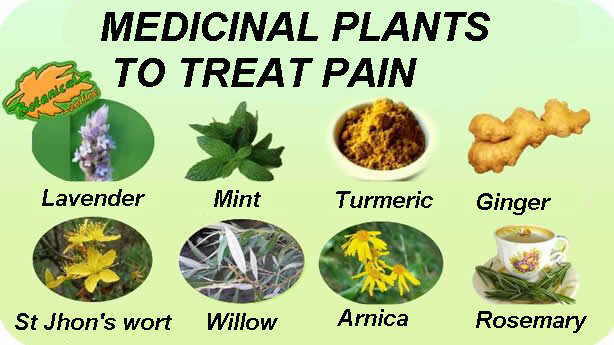Table of Contents
Introduction to Remedies for Seasonal Allergies
Millions around the globe are impacted by remedies for seasonal allergies, commonly referred to as hay fever or allergic rhinitis, which lead to symptoms such as sneezing, nasal blockage, itchy eyes, and tiredness. These symptoms can interfere with everyday activities and undermine overall health. Although many people use OTC medications, a lot of them look for natural remedies for seasonal allergies to ease their discomfort. This detailed guide examines a range of natural treatments and lifestyle changes aimed at effectively managing and mitigating seasonal allergy symptoms.
Understanding Seasonal Allergies
Seasonal allergies arise when the immune system reacts excessively to airborne particles like pollen from trees, grasses, and weeds. This excessive response results in histamine release, which triggers inflammation and the usual allergy symptoms. To manage remedies for seasonal allergies effectively, it is vital to comprehend their triggers and mechanisms.
Natural Remedies for Seasonal Allergies
Nasal Irrigation
Nasal irrigation is the process of washing the nasal passages with a saline solution to eliminate allergens and mucus, thereby alleviating congestion and irritation. Nasal passages can be effectively cleared by using a saline spray or neti pot. To prevent infections, it is crucial to use distilled or boiled (and cooled) water when preparing the saline solution.
How to Perform Nasal Irrigation:
Prepare a saline solution by mixing 1 cup of distilled or boiled (and cooled) water with 3 teaspoons of iodide-free salt and 1 teaspoon of baking soda.
Using a pot or bulb syringe, pour the solution into one nostril while tilting your head to allow it to flow out the other nostril.
Repeat on the other side.
Performing this routine once or twice daily during allergy season can help alleviate symptoms and is the best remedies for seasonal allergies.
Quercetin Supplementation
Quercetin, a natural flavonoid, is present in foods such as apples, onions, and berries. It has antihistamine effects and can stabilize mast cells to prevent histamine release. Taking supplements of quercetin could aid in alleviating allergy symptoms for remedies for seasonal allergies . Consulting with a health care provider for suitable dosing is advisable.
Recommended Quercetin-Rich Foods:
Apples
Onions
Berries
Citrus fruits
Broccoli
Incorporating these foods into your diet can provide remedies for seasonal allergies and additional antihistamine benefits.
Probiotic Consumption
Probiotics are beneficial bacteria that support gut health, which is linked to immune system regulation. Consuming probiotic rich foods like yogurt, kefir, and fermented vegetables may help reduce the severity of allergy symptoms.
Probiotic-Rich Foods to Include:
Yogurt
Kefir
Sauerkraut
Kimchi
Miso
Aim to include these foods in your daily diet to support immune health.
Maintaining a Clean Home Environment
Reducing indoor allergens are the best remedies for seasonal allergies can significantly alleviate allergy symptoms. Regular cleaning helps minimize exposure to dust mites, mold, and pet dander.
Cleaning Tips:
Utilize a vacuum cleaner with a HEPA filter to capture allergens.
To get rid of dust mites, wash your bedding and curtains in hot water once a week.
You might want to consider using air purifiers that have HEPA filters in order to cut down on airborne allergens.

Staying Informed About Pollen Counts
Monitoring local pollen forecasts can help you plan and remedies for seasonal allergies outdoor activities and minimize exposure during peak pollen times. Many weather services provide daily pollen counts during allergy season.
Tips to Reduce Pollen Exposure:
Minimize outdoor activities when pollen counts are high, which usually occurs in the early morning and late afternoon.
To stop pollen from entering, keep the windows in your car and house closed.Cigna Health Care
To eliminate pollen, take a shower and change your clothes after being outside.
Using Air Conditioning
Allergy sufferers can find relief from their symptoms thanks to air conditioners, which can filter out pollen. Make sure that air conditioning units have HEPA filters and are maintained on a regular basis remedies for seasonal allergies.
Benefits of Air Conditioning:
Filters out airborne allergens, including pollen.
Maintains a cool indoor environment, reducing the need to open windows.
Dehumidifies indoor air, which can help reduce mold growth.
Implementing Lifestyle Modifications
Lifestyle Tips:
Stay hydrated to help thin mucus and alleviate congestion.
Engage in regular exercise to support overall health and immune function.
Practice stress-reduction techniques like meditation or yoga, as stress can exacerbate allergy symptoms.
Dietary Adjustments to Combat Allergies
Embrace an Anti-Inflammatory Diet
Including foods with anti-inflammatory properties in your diet may lessen the intensity of allergy symptoms:
Omega-3 fatty acids: Present in oily fish such as mackerel, salmon, and sardines, omega-3s can assist in diminishing bodily inflammation, which may alleviate allergy symptoms like puffy eyes and an itchy throat. Tasty Food
Foods Loaded with Vitamin C: Citrus fruits, strawberries, and bell peppers boast high levels of vitamin C, which functions as a natural antihistamine and may alleviate allergy symptoms. dedicated care
Probiotics: Foods are remedies for seasonal allergies such as yogurt, kefir, and fermented items like sauerkraut promote gut health, which is associated with enhanced immune responses and may aid in allergy management. Eating Well
Monitor and Limit High-Histamine Foods
Certain foods can worsen allergy symptoms because of their histamine levels:
Aged cheeses and processed meats: These foods can raise histamine ( naturally occurring chemical compound that plays a crucial role in various bodily functions, including immune responses, digestion, and the central nervous system) levels in the body, which may exacerbate allergy symptoms. Eating Well
Alcohol and Fermented Beverages: These can elevate histamine levels, so it’s advisable to consume them in moderation during allergy season.
Herbal Remedies for Allergy Relief
1. Butterbur
Research indicates that butterbur extract can reduce allergy symptoms without inducing drowsiness, demonstrating effectiveness comparable to that of certain antihistamines. It is, however, crucial to utilize processed extracts remedies for seasonal allergies that do not contain pyrrolizidine alkaloids, as these can be detrimental to liver health.
2. Stinging Nettle
Stinging nettle may function as a natural antihistamine, helping to relieve sneezing and itching associated with seasonal allergies. Consult with a healthcare provider before use, especially if you are on other medications.
3. Quercetin
Quercetin, a natural flavonoid, is present in foods such as onions, apples, and berries. It might assist in stabilizing mast cells and minimizing histamine release, which could ease allergy symptoms. While supplements can be obtained, it is wise to seek advice from a healthcare professional before beginning any new supplement routine and remedies for seasonal allergies.
Lifestyle Modifications to Reduce Exposure
Monitor Pollen Counts
Keep yourself updated on the daily pollen levels in your vicinity. During periods of high pollen levels, restrict outdoor activities, particularly at peak times such as the early morning and late afternoon.
Keep Indoor Air Clean
Utilize HEPA Filters: High-efficiency particulate air (HEPA) filters effectively capture pollen and other allergens, thereby enhancing the quality of indoor air and explains the remedies for seasonal allergies.
Keep Humidity Levels Low: The use of dehumidifiers can assist in minimizing mold development, which is another frequent allergen.
Personal Hygiene Practices
Shower After Outdoor Activities: This aids in eliminating pollen from your skin and hair, thus preventing it from entering indoors are the remedies for seasonal allergies. Change Clothes When You Get Home: To prevent allergens from coming indoors, put on clean clothes after being outside.
When to Seek Medical Advice
Although natural remedies can work well, consulting with a healthcare provider is crucial if:
Ongoing Symptoms: Symptoms continue to occur even with at-home measures.
Severe Reactions: Encounters with serious allergic reactions, like breathing difficulties or swelling.
Medication: Discussion: Consideration
Conclusion:
Tackling remedies for seasonal allergies requires a comprehensive strategy that encompasses changes to one’s diet, herbal treatments, alterations to one’s way of life, and natural remedies. You can lessen symptoms and enhance your life quality during allergy season by recognizing your triggers and applying these strategies. Before beginning any new treatment, always seek advice from a healthcare professional to confirm its suitability for your specific health needs.









